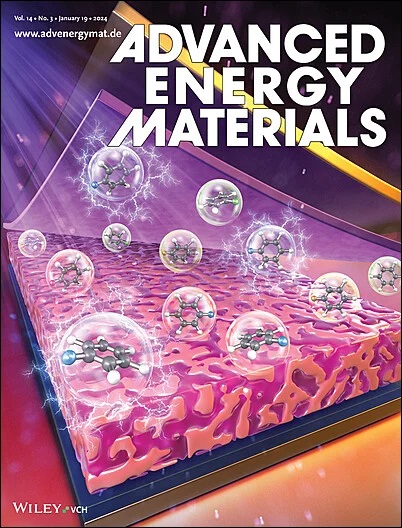Exploring Hybrid Electrolytes for Zn Metal Batteries
IF 24.4
1区 材料科学
Q1 CHEMISTRY, PHYSICAL
引用次数: 0
Abstract
Aqueous zinc metal batteries (AZBs) have emerged as promising alternatives to lithium-based energy storage systems owing to their low cost, intrinsic safety, and abundant elemental resources. However, their commercial viability has been severely restricted by critical challenges such as dendrite growth, chemical corrosion, hydrogen evolution reaction, poor temperature adaptability, and cathode dissolution. To address these issues, hybrid electrolyte strategies have been extensively explored, as they can stabilize the Zn metal anode, cathode, and electrode/electrolyte interface, demonstrating significant potential for AZBs. Herein, the recent advance in the design of hybrid electrolytes is comprehensively reviewed. First, the fundamental properties and the classification of hybrid electrolytes are discussed. Then, the challenges and strategies on anode, cathode, and electrolyte are systematically debated. Furthermore, critical considerations, including ionic conductivity, electrolyte stability, voltage window, and side reactions, for the rational design of hybrid electrolytes are addressed, along with the challenges in optimizing battery performance. Additionally, this review addresses bottleneck issues for practical AZBs, such as large-scale production, cost control, reproducibility, and safety. Finally, the prospects for the advanced hybrid electrolytes are provided, guiding the development of the practical AZBs toward future energy storage technologies.

探索锌金属电池的混合电解质
水锌金属电池(azb)由于其低成本、固有安全性和丰富的元素资源而成为锂基储能系统的有前途的替代品。然而,它们的商业可行性受到诸如枝晶生长、化学腐蚀、析氢反应、温度适应性差和阴极溶解等关键挑战的严重限制。为了解决这些问题,混合电解质策略已经被广泛探索,因为它们可以稳定Zn金属阳极,阴极和电极/电解质界面,显示出azb的巨大潜力。本文综述了近年来混合电解质设计的最新进展。首先,讨论了混合电解质的基本性质和分类。然后,系统地讨论了阳极、阴极和电解质方面的挑战和策略。此外,本文还讨论了混合电解质合理设计的关键因素,包括离子电导率、电解质稳定性、电压窗和副反应,以及优化电池性能的挑战。此外,本文还讨论了实际azb的瓶颈问题,如大规模生产、成本控制、可重复性和安全性。最后,展望了先进混合电解质的发展前景,指导了实用azb向未来储能技术的发展。
本文章由计算机程序翻译,如有差异,请以英文原文为准。
求助全文
约1分钟内获得全文
求助全文
来源期刊

Advanced Energy Materials
CHEMISTRY, PHYSICAL-ENERGY & FUELS
CiteScore
41.90
自引率
4.00%
发文量
889
审稿时长
1.4 months
期刊介绍:
Established in 2011, Advanced Energy Materials is an international, interdisciplinary, English-language journal that focuses on materials used in energy harvesting, conversion, and storage. It is regarded as a top-quality journal alongside Advanced Materials, Advanced Functional Materials, and Small.
With a 2022 Impact Factor of 27.8, Advanced Energy Materials is considered a prime source for the best energy-related research. The journal covers a wide range of topics in energy-related research, including organic and inorganic photovoltaics, batteries and supercapacitors, fuel cells, hydrogen generation and storage, thermoelectrics, water splitting and photocatalysis, solar fuels and thermosolar power, magnetocalorics, and piezoelectronics.
The readership of Advanced Energy Materials includes materials scientists, chemists, physicists, and engineers in both academia and industry. The journal is indexed in various databases and collections, such as Advanced Technologies & Aerospace Database, FIZ Karlsruhe, INSPEC (IET), Science Citation Index Expanded, Technology Collection, and Web of Science, among others.
 求助内容:
求助内容: 应助结果提醒方式:
应助结果提醒方式:


